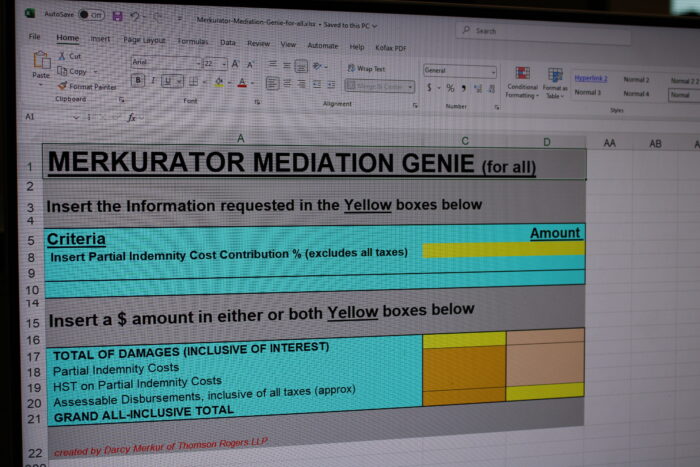8 Things You (Probably) Don’t Know About Motor Vehicle Accident Injury Lawsuits in Ontario
Author(s): Robert M. Ben*
April 20, 2021

Each year thousands of drivers, cyclists and pedestrians are injured in motor vehicle accidents in Ontario. Many never fully recover from their injuries and are left to deal with pain, limitations, medical and rehabilitation expenses and loss of income. Serious injury victims may have a right to compensation (damages) through the court system.
Here are 8 things you probably don’t know about motor vehicle accident injury lawsuits in Ontario:
- FAULT – You must prove your injuries were caused by the fault or negligence of someone else involved in the accident in order to successfully sue them. A person does not need to be 100% at-fault for the accident to be responsible for your injuries, nor does a person have to be the only cause of the accident. You can be partially at-fault for the accident and still recover some damages (see No. 7).
- OWNERS MUST INSURE THEIR VEHICLES – You cannot sue for damages if you are the owner of an uninsured car involved in an accident and you are injured, even if you are not at fault.
- BURDEN/STANDARD OF PROOF You, the injury victim, normally bear the burden of proving: (a) fault or negligence for the accident; and (b) that the accident was the cause of your injuries. The proof is on a “balance of probabilities” (i.e., more likely than not), a much lower standard than “beyond reasonable doubt” in criminal cases.
- PEDESTRIANS AND CYCLISTS GET SPECIAL TREATMENT – The driver of the motor vehicle who injures a pedestrian or cyclist will be presumed negligent and will bear the burden of disproving his or her negligence.
- INJURY THRESHOLD – Your injuries have to rise to the level of a “permanent serious impairment of an important physical, mental or psychological function” according to the expert opinion of a medical doctor or you cannot recover any damages for pain, suffering, loss of enjoyment of life and health care expenses in Ontario. You may, however, still be able to recover income losses.
- TIME LIMIT TO SUE – You only have two years from the date of the motor vehicle accident to sue, subject to some very limited exceptions. If you are a minor, the two years generally don’t start until you turn 18.
- CONTRIBUTORY NEGLIGENCE – If you are found partially at fault for the accident, your damages will be reduced by the percentage of your fault.
- LIABILITY FOR LEGAL COSTS – If you succeed at trial, the unsuccessful defendant will normally be responsible to pay part of your legal fees. If, however, you are unsuccessful at trial or are awarded damages in an amount less than the defendant’s offer to settle, you will normally be responsible to pay part of the defendant’s legal fees.
Laws change from time to time and may or may not apply depending on the particular facts of your case. If you are injured in a motor vehicle accident you should promptly seek legal advice from an experienced personal injury lawyer.
For more on motor vehicle accident injury lawsuits, read 8 More Things You (Probably) Don’t Know About Motor Vehicle Accident Injury Lawsuits in Ontario.
Thomson Rogers offers free consultations so please feel free to reach out to us at any time. We are here to help.
Robert Ben is a personal injury lawyer and a partner at Thomson Rogers. Robert is listed in peer-reviewed publications – Lexpert® and The Best Lawyers™ in Canada and is ranked AV pre-eminent in Martindale-Hubbell ®. Robert can be reached at 416-868-3168 or by EMAIL.
For Thomson Rogers updates please subscribe to our email list here.
Share this






